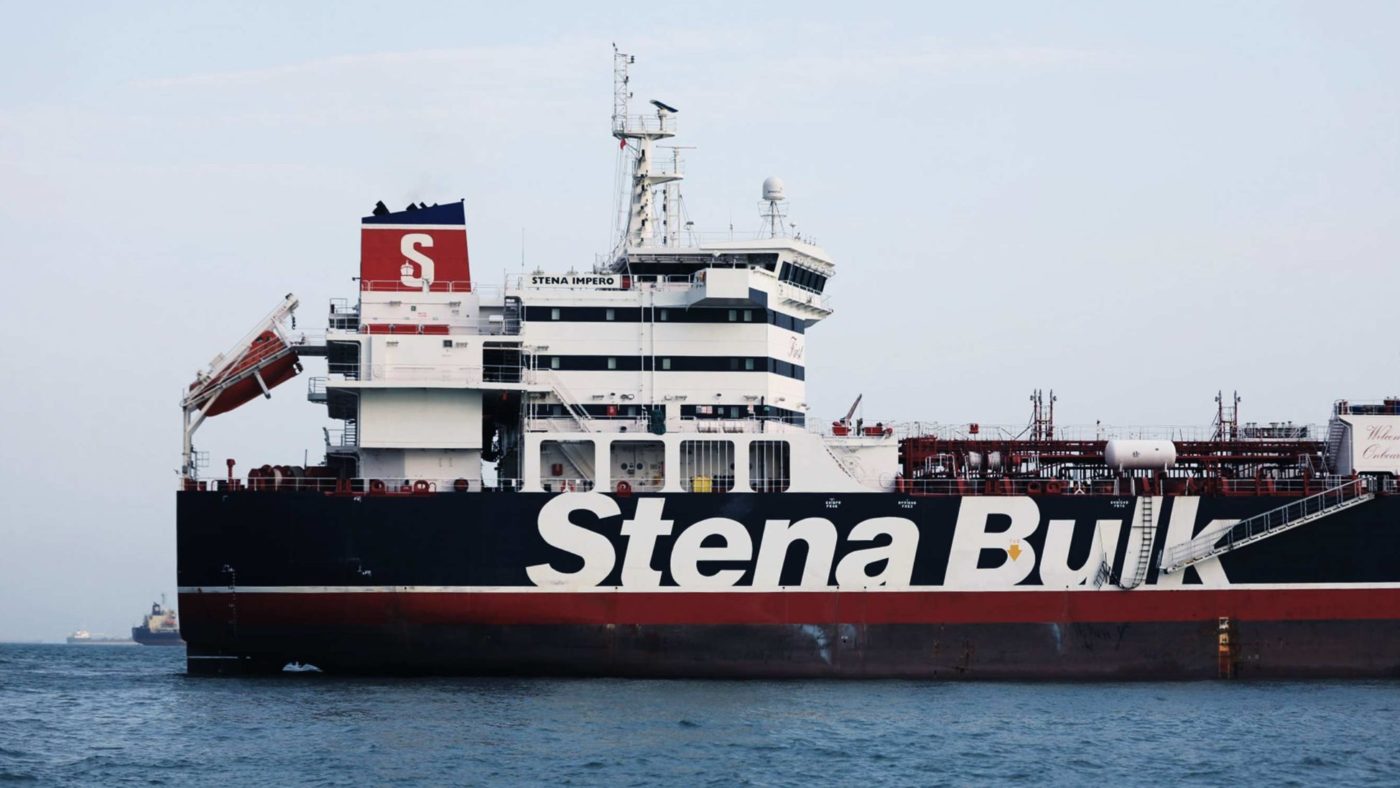Britain’s next prime minister was never likely to have enjoyed an easy start. With no majority in the House of Commons, and having reached a point with Brexit which proved impassable enough to end the career of Theresa May, Boris Johnson will not have the strongest of hands upon assuming office.
A confrontation in the Gulf would always, of course, have complicated matters. But this particular moment proves especially unfortunate timing given the lack of visible – let along strong – political leadership in the UK.
To recap events, an empty tanker, the Stena Impero, was boarded and redirected by Iran’s Revolutionary Guard, and its crew are being held hostage. Though a British warship, HMS Montrose, is in the area, and successfully warded off an Iranian attempt on another tanker, British Heritage, earlier this month, it was unable to prevent the seizure of the Impero. As part of a small and fluctuating British presence in the Gulf, HMS Montrose can continue to escort other shipping, but it presents little real threat to the Impero’s occupiers.
It’s important to understand the real weakness of the British military at this moment. Britain’s armed forces are smaller and less operationally capable than they have been at any other time in recent history. Iran’s forces, meanwhile, are vastly more numerous and, although their capability is limited by sanctions and technical factors, present a serious obstacle to any British action. Taken together, these facts severely limit Britain’s capacity for a military response and, more importantly, the value of the threat of one.
Jeremy Hunt, in his capacity as foreign secretary, exemplifies this problem. Today he announced Britain’s desire for a multi-national force to protect shipping in the Gulf, but took special care to suggest that this was not intended as an aggressive act.
That response was dictated by other factors, not least the odd ambivalence of the United States. America appears to be having it both ways – seeking to build an international naval protection squadron of its own in the Gulf (known as Operation Sentinel), but also suggesting the protection of British-flagged tankers is solely the duty of the British themselves.
Such is the situation facing the next prime minister. Yet it is a depressing irony that both contenders for Downing Street willingly participated in the weakening, even tying, of their own hands.
Both actively endorsed and then fought to protect a nuclear deal with Iran which was not only likely to break down – as happened last year – but which had serious flaws. These were flaws that would have made Iranian aggression more likely and less susceptible to outside moderation, even if the deal had held.
The deal, however, failed, and it failed not on its own terms, but through its many omissions. The Joint Comprehensive Plan of Action attempted to regulate Iran’s refinement of nuclear material in a bid to prevent it building nuclear weapons. Placated by a temporary cession of nuclear threat, the signatories to the deal allowed Iran to expand its sphere of influence in Iraq, Syria, and Yemen. When Iranian forces killed tens of thousands and took over much of Syria, the deal was of little value. It did nothing to restrain Iran’s proxy organisations, run through the international arm of the country’s Islamic Revolutionary Guards.
The deal did nothing to arrest the development of Iran’s international terror network, including Lebanese Hezbollah, even when these activities extended to moving tonnes of bomb-making materials in London during the period of the deal’s negotiation. This detail, it must be said, was something which was kept from MPs and the public for four years.
The deal Johnson and Hunt acquiesced to and sought latterly to save did nothing to halt Iran’s regional ambitions. All the lawlessness demonstrated by this recent act of what some (including Hunt) call ‘piracy’ has been seen in years of Iranian policy. That policy was unrestrained and effectively guaranteed by Britain’s pursuit of a nuclear accommodation which even now, no British prime minister has the will or the desire to reject.
All this leaves Britain with few options, and Boris Johnson little alternative but to wait for the situation to end, or to improve.
CapX depends on the generosity of its readers. If you value what we do, please consider making a donation.


